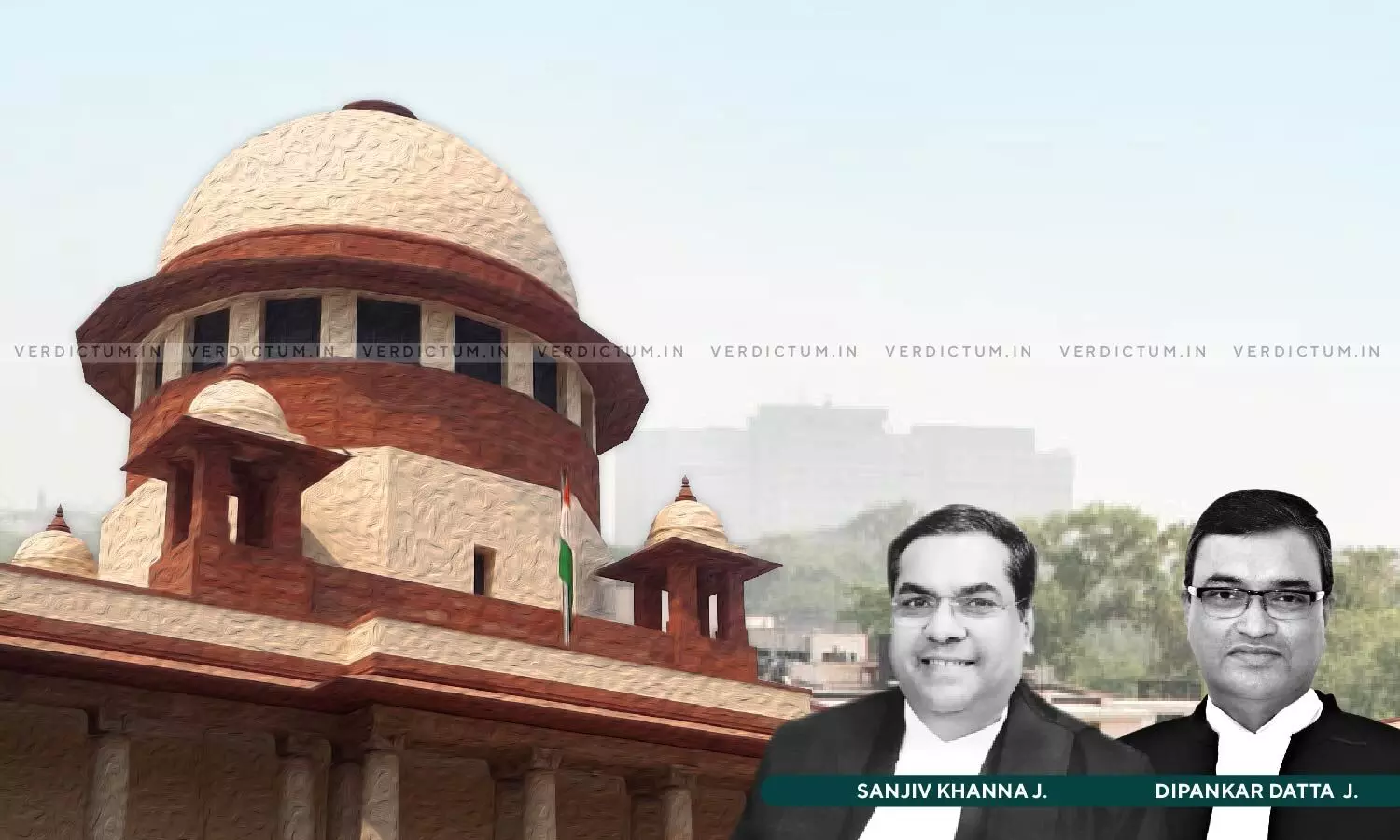
Objections Regarding Ambiguities Of Specific Details/Data, Post Acceptance Of Resolution Plan By CoC, Should Be Rejected, Except In An Egregious Case Where Data & Facts Are Fudged/ Concealed: SC
 |
|The Supreme Court observed that after the Committee of Creditors accepts a resolution plan, objections regarding ambiguities or lack of specific details should be rejected unless there is "an egregious case where data and facts are fudged or concealed".
The court observed that it was strange for a company to argue that the superspecialists and financial experts were gullible and misunderstood the details, figures or data while preparing a Resolution Plan.
Justice Sanjiv Khanna and Justice Dipankar Datta observed, “Records of corporate debtor, who are in financial distress, may suffer from data asymmetry, debatable or even wrong data. Thus, the provision for transactional audit etc, but this takes time and is not necessary before information memorandum or virtual data room is set up. Financial experts being aware, do tread with caution.”
Sr. Advocates A. M. Singhvi, Guru Krishna Kumar, and Shyam Divan appeared for the parties.
The successful resolution applicants, Deccan Value Investors L.P. and DVI PE (Mauritius) Ltd., alleged fraud on the part of the resolution professional, citing lack of information about the Metalyst Forgings Ltd.’s (corporate debtor) revenue sources and unreliable financial data. However, the Court found these grounds insufficient to justify withdrawal, holding that they did not amount to fraud by the resolution professional.
The Court explained that “resolution plans are not prepared and submitted by lay persons. They are submitted after the financial statements and data are examined by domain and financial experts, who scan, appraise evaluate the material as available for its usefulness, with caution and scepticism.”
The Supreme Court set aside the impugned judgment of the National Company Law Appellate Tribunal (NCLAT) in light of the judgment in Ebix Singapore Private Limited v. Committee of Creditors of Educomp Solutions Limited where it was established that a resolution applicant cannot withdraw or modify a resolution plan after it is approved by the Committee of Creditors, as per Section 31(1) of the Insolvency and Bankruptcy Code.
“Information memorandum is not to be tested applying “the true picture of risk” obligation, albeit as observed by the NCLAT the resolution professional’s obligation to provide information has to be understood on “best effort” basis,” the Court clarified.
Consequently, the Court set aside the NCLAT’s judgment and directed the parties to appear before the NCLT to cut short the delay.
Accordingly, the Supreme Court allowed the appeal.
Cause Title: Deccan Value Investors L.P. & Anr. v. Dinkar Venkatasubramanian & Anr.
Appearance:
Sr. Advocates A. M. Singhvi, Guru Krishna Kumar, and Shyam Divan; AOR E. C. Agrawala, S. S. Shroff and Anannya Ghosh; Advocates Mahesh Agarwal, Rishi Agrawala, Rohan Dakshni, Nikita Mishra, Himanshu Satija, Geetika Sharma, Nidhi Ram Sharma, Aakansha Kaul, Misha, Anoop Rawat, Siddhant Kant, Saurav Panda, Nikhil Mathur, Prithviraj Oberoi, Brian Henry Moses.